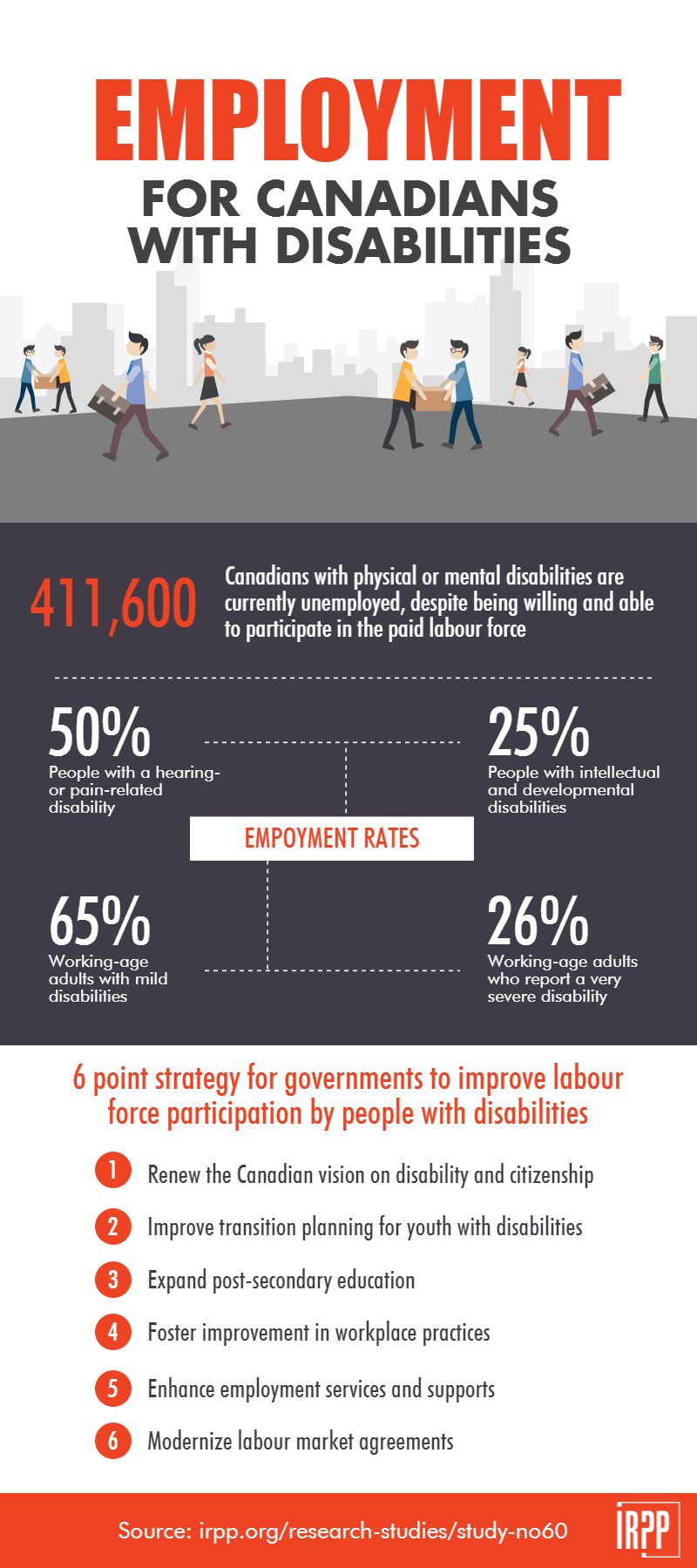Canadians with disabilities have consistently experienced low levels of employment, as well as barriers in the educational, economic and social spheres. They face massive obstacles in participating in the labour market, especially those with severe disabilities or low educational attainment. Many need work accommodations and supports.
In this Institute for Research on Public Policy (IRPP) study, Michael Prince analyzes the employment situation and the policy context for working-age adults with mental or physical disabilities. He finds a disproportionate number of them are unemployed, even if they are able and wish to participate in the labour force. Of those who are employed, many work for below minimum wage and are not protected by labour legislation.
While over the years governments have developed measures to enable Canadians with disabilities to participate in the labour force, their efforts have been inconsistent. Federal, provincial and local programs for Canadians with disabilities are, says Prince, "a disjointed patchwork of widely varying practices and uneven accessibility, affordability and responsiveness."
Download Inclusive Employment for Canadians with Disabilities
This situation is in good part the result of policy choices made by the federal government over the past, such as the transfer — starting in the late 1990s — of the employment insurance funds for labour market programs and services to the provinces and territories; a decrease in spending on programs for persons with disabilities over the past decade; and neglect of the Labour Market Agreements for Persons with Disabilities. The federal government has committed to introduce accessibility and inclusion legislation over the course of its mandate. Michael Prince argues that in order to eliminate systemic barriers and deliver equality of opportunity, priorities for decision-makers should include connecting employers and people with disabilities, and supporting employers in the provision of work accommodations and job-related supports.
The author proposes a six-point strategy for governments to improve labour force participation by people with disabilities:
- renew the Canadian vision on disability and citizenship;
- improve transition planning for youth;
- expand post-secondary education;
- foster improvement in workplace practices;
- enhance employment services and supports; and
- modernize labour market agreements.
Canadians with disabilities should have access to real work for real pay, and their rights should be protected by labour legislation and safety standards, on an equal basis with other workers.
Table of Contents
Summary
Résumé
Disability and Labour Market Policy
Review of Disability Policies
Toward a New Policy Framework
Final Thoughts
Notes and References
About This Study
